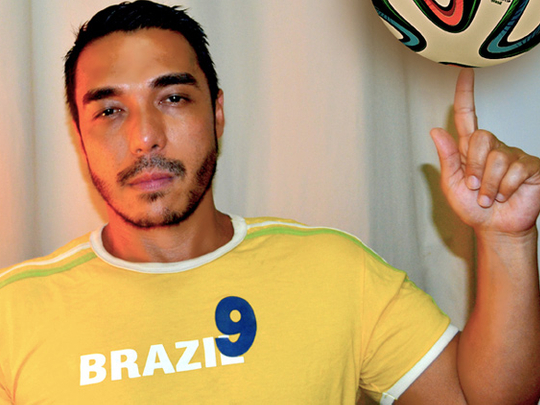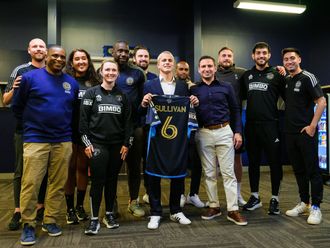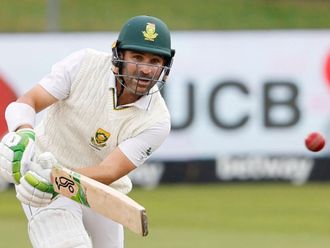
The first time our Editor-in-Chief saw me in the newsroom, he casually asked which country I came from. Learning that I was from Brazil, he said with a smile: “Great, let’s go and make a soccer team!”
I also smiled but once again said to myself: “I hate soccer”.
You cannot imagine how difficult it is to be a Brazilian who doesn’t like soccer in a foreign country. Whenever, wherever I have said that I am a Brazilian, someone would start “Oh, Ronaldo, Romario, Kaka…” and I can only nod.
The positive aspect about being a Brazilian is to see the happiness it brings on the faces of people, even in rather humourless situations - like the cop who asked for my ID at dawn. It has been a common experience for me to find a soccer buff rattle about football in my country and all I could do was to keep a smile on my face - pretending that I knew everything he said.
While I was in Brazil, the fact I was ignorant about soccer never bothered me. But the connection of Brazil and soccer is so synonymous that in other cities in the world, I need to constantly fight my ignorance.
Why I don’t like soccer? As I started pondering over it, I realised that its roots lay in my childhood during the school days.
In Brazil, it’s a pre-requisite for any kid to be a good footballer and it was no different in my school. This is how it worked: the physical education teacher will select two leaders who would choose their teams. Competition was tough and the poor players always lagged behind and I, of course, was one of them.
To be honest, I was the last boy of sorts. The situation was so embarrassing that the teacher had to thrust me into one of them and as you can imagine, the reaction of the teammates I was thrown into was not positive.
The problem with soccer in Brazil is that it can never be a mere source of entertainment. It’s always serious business and there is no room for a bad player – as I found out to my discomfort. I start to skip the classes and my grades in Physical Education started slipping…the school summoned my parents but it did not really help things.
May be, this early trauma and fear of rejection in the social circles made me turn away from soccer. I also regret the fact that despite being a country of such cultural diversity and abundance of writers, artists and singers, why do people tend to identify Brazil with only football and the carnival?
Even though Brazil has produced quality performers in other sport like volleyball, basketball, gymnastics or martial arts, their achievements have been overshadowed by the exploits in football.
Is it then, really a country of soccer? A research conducted by the IBGE (Brazilian Institute of Geography and Statistics) shows a startling figure: 43% of the Brazilians actually do not like football.
Surprising, but true in the context of modern Brazil. In the past, children had the open space all around to grow up with the beautiful game but today, residential and office buildings have encroached upon them. Result: street soccer has been replaced by play stations and other activities.
I often feel that for all the madness about football there, Brazilians are more concerned about winning…and winning only. The fanaticism for their regional teams make them bad losers – and also put pressure on the national team players down the ages in stages like the World Cup.
This is a fact I have learnt to live with now!












